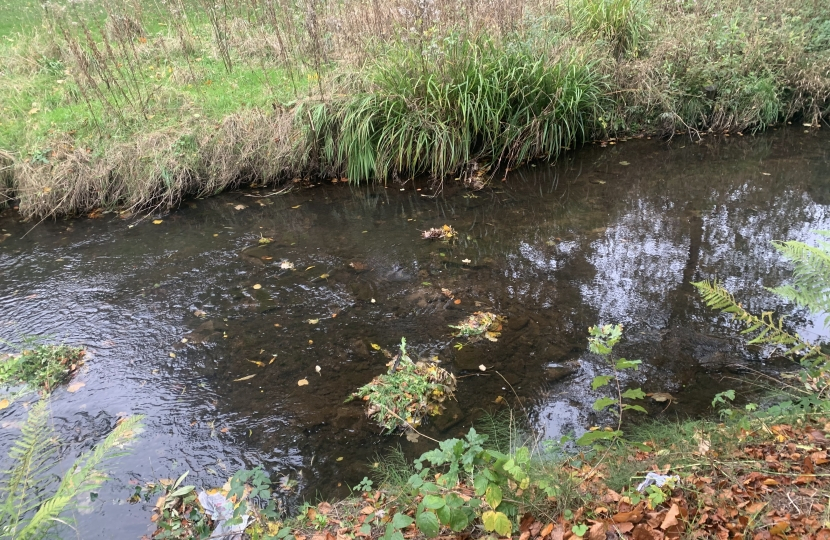
I understand and absolutely share the concerns about sewage discharges, however, I think it is important to recognise why we have this problem.
Storm overflows are safety valves which built into the combined sewer system to discharge excess sewage when rainfall exceeds capacity. This prevents properties becoming flooded and sewage from backing up into homes and streets when we experience heavy storms. A number of factors have put increased pressure on our sewer systems, including an increasing population, more hard surfaces (which cannot absorb excess water) and more frequent and heavier storms.
The Government has repeatedly acknowledged that the amount of sewage discharged into our rivers by water companies is completely unacceptable and has launched an ambitious plan to reduce sewage discharges and increased monitoring. In fact, since the Conservatives came to office, we have increased the number of storm overflows monitored across the network from only 5% in 2016, to nearly 90% in 2021.
Locally, I am in regular contact with both the Environment Agency and our area water company United Utilities regarding my concerns about sewage discharges into our local waterways and their plans to prevent these from taking place.
However, I have been contacted by a number of constituents regarding Parliamentary votes on sewage discharges and I would like assure you that I have not voted and would not vote to allow water companies to pump sewage into our rivers.
On the contrary, in November 2021, by supporting the Environment Act 2021, I actually voted for a package of measures to reduce harms from storm overflows. These measures include:
-
A new duty directly on water companies to produce comprehensive statutory Drainage and Sewerage Management Plans, setting out how they will manage and develop their drainage and sewerage system over a minimum 25-year planning horizon, including how storm overflows will be addressed through these plans.
For the North West, United Utilities published a plan in June 2022 detailing their initial plans to spend £18.2 billion to meet requirements, of which £3.3 billion will be invested in our region, with £2 billion of this being invested by 2035.
-
A power of direction for the governments to direct water companies in relation to the actions in these Drainage and Sewerage Management Plans, which means there will be oversight of these plans.
-
A new duty on governments to produce a statutory plan to reduce discharges from storm overflows.
-
A requirement for the Government to produce a report setting out the actions that would be needed to eliminate discharges from storm overflows in England, and the costs and benefits of those actions.
-
A new duty directly on water companies and the Environment Agency to publish data on storm overflow operation on an annual basis, meaning transparency for the public.
-
A new duty directly on water companies to publish near real time information on the operation of storm overflows. This means it will be clear as to how often storm overflows are being used, which will aid enforcement.
-
A new duty directly on water companies to monitor the water quality upstream and downstream of storm overflows and sewage disposal works.
Despite claims by the Liberal Democrats, Conservative MPs, myself included, did not vote on 25th January to legalise or allow more sewage to go into our rivers. The vote they refer to was on regulations which introduce the Environment Act 2021’s legally binding environmental targets.
Sadly, Labour and Liberal Democrat MPs voted against these regulations to improve water and air quality, and halt nature decline.
Lastly, efforts by opposition groups to prevent these regulations from passing would have led to sewage backing up into peoples’ homes and through manholes in the street. I will never allow legislation which risks this happening.

